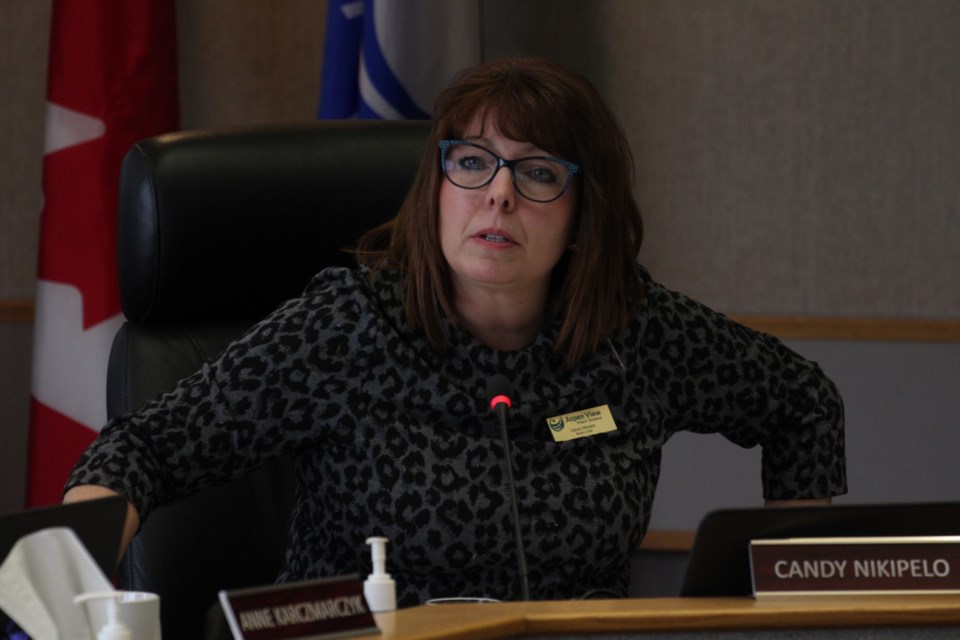ATHABASCA - Christmas break is over, and for Grade 12 students across the province that means it’s time to crack open their textbooks and study guides for their winter diploma exams, which will run until Jan. 30. After three years of disruption from the COVID-19 pandemic, the standardized tests returned to their normal 30 per cent weighting, prompting discussion over whether or not that is too high for students.
“They’re testing themselves against the standard, so the students themselves see where they’re at a point in time, and I think that’s an important point,” said Aspen View Public Schools (AVPS) board chair Candy Nikipelo. “Students are learning that there’s challenges and difficulty both in school settings and life … Preparing for this big exam is preparing them for any upcoming schooling that they choose, and I think it’s a good introduction to big exams and that competition.”
Originally introduced in 1984 by then-minister of education David King, diploma exams were worth 50 per cent of a student’s final grade. That changed in 2015 when the weighting was lowered to 30 per cent, and again in 2019 and 2020, when COVID-19 saw the province drop the exams.
Provincially, school boards have continued to put pressure on the province to review the program — Nikipelo said the Alberta School Boards Association (ASBA) has been asking the provincial government what the exams are intended to do and if they are still meeting those intentions.
“They’re asking these questions of the government on our behalf because that’s what the membership has been asking them,” said Nikipelo. “That’s a question that they’re advocating for, and I think that’s where these news stories are coming from. ASBA is asking these questions and reigniting the conversation on diploma exams.”
In the schools
Anyone who graduated from an Alberta high school in the last 40 years will likely remember their own diploma exams, just as Nikipelo does — memories of cramming in a favourite study spot, hushed conversations in the hallway with friends after handing in the exam, and the stress that seemed to follow everyone around for the month-long period.
“Everyone’s got different views on these exams — I wrote them in 1985, and that was the second year they were used,” said Nikipelo. “Back then, there was even less of an effort from the schools to prep the students for this big exam, and I remember almost half our class doing rewrites.”
“We all survived it but it was tough. I think it’s a good comparison for students across the province. When we compare rural and urban students, it allows us to ask if our rural students are getting the same quality education as their urban counterparts,” added Nikipelo.
During a Jan. 8 school council meeting in Boyle, Nikipelo said she had talked to parents to get their perspective on it, and to update them on where the board stood.
“Everybody talked about their experiences with it, and I told them the board's stance — they still are a relevant tool for analyzing where students are,” said Nikipelo. “Everybody was in agreement; they never want to see it go back to 50 per cent ever again.”



